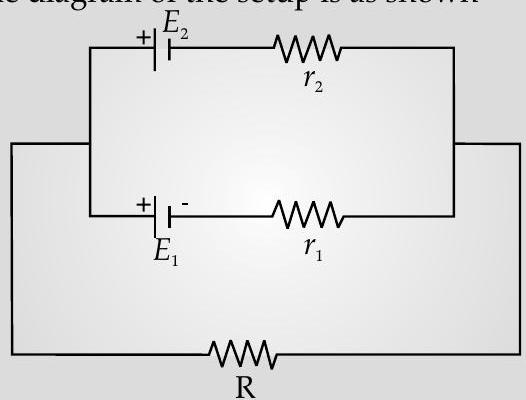Question: Q. 14. A student connects a cell, of emf and internal resistance with a cell of emf and internal resistance , such that their combination has a net internal resistance less than . This combination is then connected across a resistance .
Draw a diagram of the ‘set-up’ and obtain an expression for the current flowing through the resistance.
R [Foreign Comptt., 2016]
Show Answer
Solution:
Ans. Since , the two cells must have been connected in parallel.
The diagram of the setup is as shown

Note :
[Award mark even if the student directly draws the diagram of the setup]
Equivalent internal resistance,
Equivalent emf, is given by
The current, flowing through , is
where, and are given by the above expressions. [Note : Award 2 marks if the student obtains / writes the expression, for the current flowing through .
[CBSE Marking Scheme, 2016]







